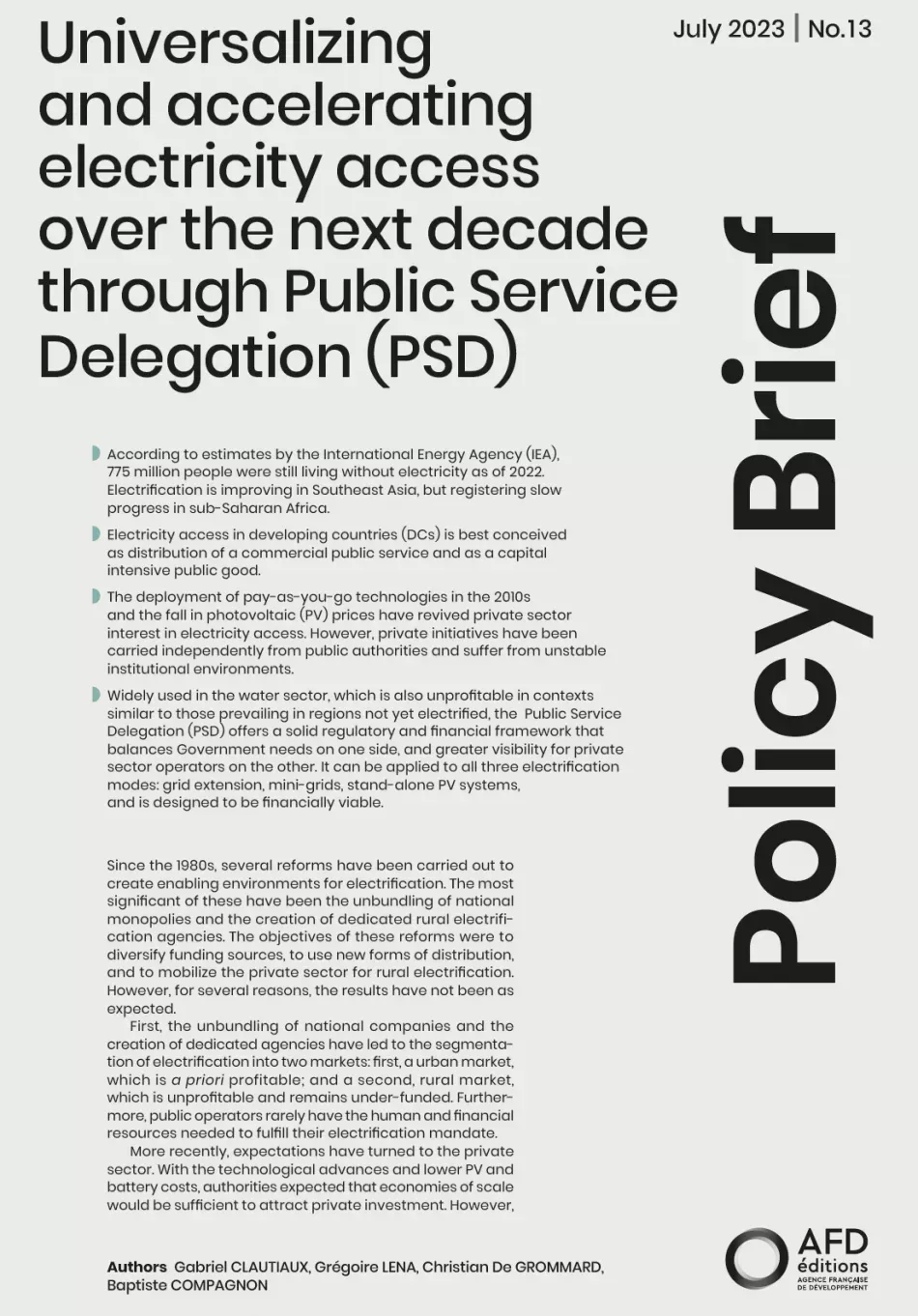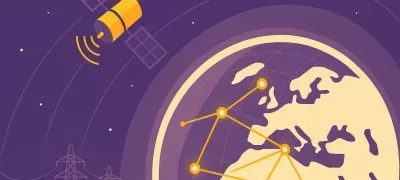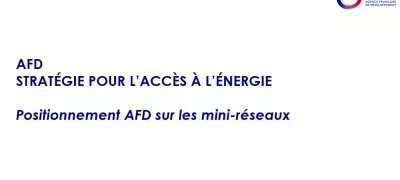
Widely used in the water sector, which is also unprofitable in contexts similar to those prevailing in regions not yet electrified, the Public Service Delegation (PSD) offers a solid regulatory and financial framework that balances Government needs on one side, and greater visibility for private sector operators on the other. It can be applied to all three electrification modes: grid extension, mini-grids, stand-alone PV systems, and is designed to be financially viable.
Public Service Delegation (PSD) serves as an alternative organizational mode for universalizing access to electricity, comprising two main types: lease and concession. Lease involves the delegating authority financing and providing necessary equipment and infrastructure to the operator, who implements, operates, and earns revenue from the service. On the other hand, concession involves the concessionaire financing and executing investments delegated by the public authority. Hybrid solutions like concessive leasing and subsidized concessions integrate engineering, financing, implementation, and operation of equipment, fostering long-term engagement of both public and private sectors.
In areas where financial profitability of access is challenging, PSD offers a means to mobilize public and private entities, ensuring the sustainability of electricity service while providing a reassuring regulatory framework for private entities. Sustainable PSD projects require long-term viability and visibility, necessitating appropriate subsidy systems and tariffs aligned with service nature and client capacity. However, effective implementation requires dedicated public concession authorities and a national programming framework, yet existing rural electrification agencies are often ill-equipped for prolonged financial intermediation and distribution monitoring.
Beyond financial viability, PSD aims to maximize socio-economic impacts by engaging anchor customers responsible for significant electricity demand, balancing DSP operational dynamics. Additionally, PSD can integrate social electrification objectives for schools and healthcare centers, acknowledging electricity as a necessary but insufficient condition for socio-economic development. Operators are encouraged to transition from network managers to service providers, supporting entrepreneurship and equipment distribution, as demonstrated by projects like Côte d'Ivoire's MAX electrification initiative. NGOs hold valuable experience in maximizing electrification impacts, which should be leveraged to optimize electrification outcomes.



